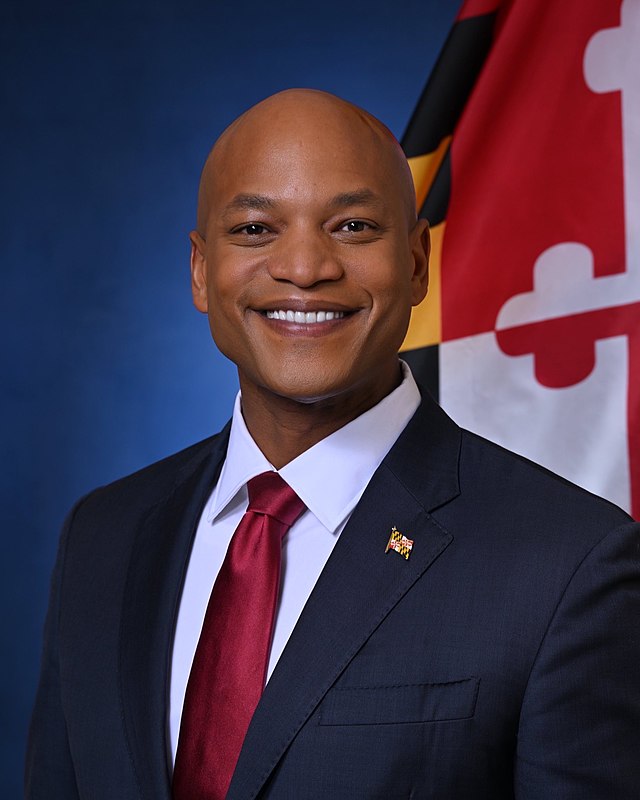
The 70 agencies beholden to state requirements aimed at increasing minority business contracts have 60 days to report on their procurement dealings since July 1, 2022.
Gov. Moore has signed an executive order requiring agencies affiliated with the Minority Business Enterprise (MBE) program to report their progress in reaching the minority business procurement goal of 29 percent.
The Moore administration reports that some agencies have yet to submit the reports that were due last July. In the latest data, from 2021, only nine of 70 MBE participating agencies have met that goal.
“I’ve said this before and I will say this again, I am data driven and heart-led; the data shows that we are not meeting the mark in our Minority Business Enterprise (MBE) program, and so my heart is saying we must do everything we can to not only meet our goals but exceed them,” said Governor Moore. “Our administration has the most diverse cabinet in history, and it’s critical that we take the first step forward in delivering more access and opportunities to our minority-owned businesses in order to create a more economically competitive and inclusive state.”
The executive order states that participating agencies will have to report on the number of procurement bids they have put out and the value of those bids. The governor is also expecting businesses to disclose the cumulative dollar amount related to contract awards, contract modifications and contract renewal options.
The state government exclusively holds control of procurement.
Detailed reports are expected, as the executive order states that MBE’s participating agencies must provide reports that detail “the quantity of contract awards with MBE goals” along with “the number of contracts modified that had MBE goals; the number of contracts that met their MBE goals at the time of the modification” and “the number of contracts that did not meet their MBE goals at the time of the modification.”
According to the executive order, the MBE goal has not been met since 2013, “hereby depriving Maryland’s MBE communities of meaningful opportunities to participate in State procurement activities and to receive hundreds of millions of dollars in procurement awards.”
Moore is the first governor to release an executive order regarding the MBE program- and he’s using every resource in his power to hold participating agencies accountable.
The executive order also requires the Department of Transportation (DOT), which oversees Maryland’s MBE certifications, to put together a report on the exact number of certified minority businesses in each of Maryland’s 24 jurisdictions. To further understand who is really being affected, the executive order is requiring DOT to also lay out, by jurisdiction, how many of those businesses are owned by African American, Hispanic, Asian, Native American, women or disabled entrepreneurs.
The Moore administration says that this data is key because when goals are aimed at all races in the “minority” category, African Americans often finish last.
“A lot of the times when legislation and opportunities get casted in a general way, African Americans get the shorter end of the stick. This is the first time the Governor is actually taking an action in this space about minority and women owned businesses,” said Acting Maryland Secretary of Commerce Kevin A. Anderson. “This is where we have to make sure our leadership stays accountable and transparent. That’s the start, we’ll get our arms around everybody, and be clear about our intentions and what we plan to do.”
“To African American businesses I say, Tie your shoes up and get going. We will help you get there but you will have to do the work,” said Anderson.
The secretary made sure to highlight that the governor is not trying to point fingers– they want to get clarity on how to move forward and meet the MBE goal.
“However embarrassing the results, we will get them and deal with it,” said Anderson.
Rev. Willie B. Tripp benefited in the MBE program with his former business, Tripp’s Office Supply Corp.
“It opened up doors for me to be a participant in large government contracts, in areas that would be ordinarily hard to get into because of majority control,” said Rev. Tripp. “A percentage of the contract had to be for MBE entities and that gave us exposure to different government agencies throughout the state of Maryland.”
“Government contracts open us up to more exposure,” continued Rev. Tripp. “Public venues choose to deal more with certified vendors more often as, we’re considered less of a risk factor.”
The MBE program ensures minority businesses are given access to the state’s procurement and contracting opportunities.



